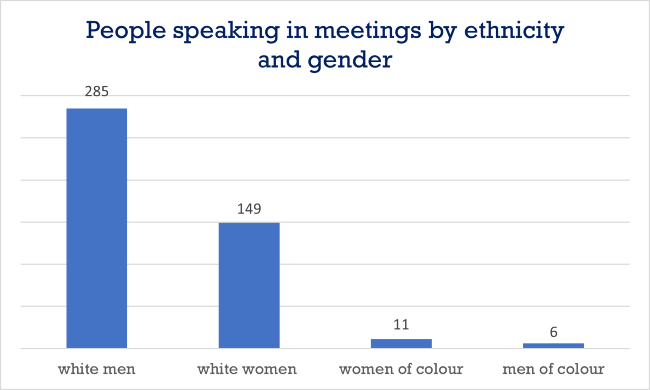Securing a just transition to a climate resilient Bristol: obstacles and opportunities
In February 2020, Bristol launched its ambitious One City Climate Strategy, committing to becoming carbon neutral and climate resilient by 2030. The Strategy, which sets out how Bristol will respond to climate change, calls for a fair and collaborative approach based upon a just transition. A just transition, loosely defined, is a transition to a post-carbon economy that is green, sustainable, and socially inclusive, leaving no one behind in the response to climate change. Bristol is one of the first cities in the world to make an explicit promise to pursue a just transition to combat climate change.
Our project sought to find out what happens once such a declaration is made. How is a just transition being interpreted and how is it being pursued? Who is involved in this process ‘on the ground’? To answer these questions, we ran a yearlong study focusing on six Bristol-based actors engaged in climate policy: two from the public sector (Bristol One City Environment/Economics Board, Bristol Advisory Committee on Climate Change) two from the private sector (Arup, Cycling Works), and two from civil society (Black and Green, Liveable Neighbourhoods).
We wanted to know: do these actors consider the idea of a just transition in their work? How do they strive to achieve this? Is their decision-making fair and inclusive? What are the barriers and what are the opportunities to just transition? Using a mixture of observations and interviews, we aim to inform the development of more just and inclusive climate policy response in Bristol and beyond.
Policy implications
• It is clear from our research that Bristol, as a city, is committed to just transition even if this is difficult to achieve. Policy makers should harness this good will to achieve the One City climate targets.
• There is an urgent need to diversify who participates in climate change decision making. The inclusion of people of colour, people who are disabled, people from working class, people who are young and people who are elderly should be prioritised in light of the disproportionate climate impacts experienced by these groups. Deciding how to do this should not fall on token members of these communities.
• The One City Climate Strategy needs to become more detailed and move beyond ambitious targets. If a just transition is to be achieved, there must be concrete steps laid out on how to get there.
• Space for meaningful critique of current policy processes must be made if there is any hope of achieving the radical change needed to move forward with the climate targets. Business as usual is not enough.
• The concept of ‘just transition’ was well understood by everyone in our project, but it was also recognized by our participants that there is no universal definition. The Citizens’ Assembly presents a significant opportunity to engage the public on the idea of just transition and for sub-state actors to invite participation and feedback on their plans. This will help the city of Bristol to understand what a just transition requires.
• One City Boards should disseminate the relevant information on climate change impacts and proposed measures to achieve a just transition in an accessible format among a broad range of stakeholders and community groups. Opportunities to hold decision-making bodies accountable should be provided e.g., via public forums or complaints procedures.

Key findings
Bristol is seen as a leader on climate change action by key stakeholders in the city – ‘[The One City Climate] strategy I think is better than what I’ve seen from other places, it’s more grounded in an understanding of the sorts of conditions that need to be created rather than the technology that needs to be fitted or subbed out.’
• Participation in climate change decision making is heavily skewed towards white men, especially in terms of number of times spoken. White men made up 40% of participants in meetings and spoke 64% of the time. White women made up 41% of participants in meetings and spoke 33% of the time. By comparison, women of colour made up 14% of participants in meetings and spoke 2% of the time, and men of colour made up 5% of participants in meetings and spoke 1% of the time. This compares to Bristol 2021 demographics: 84% white people, 16% people of colour.
• The sense that the climate change movement is dominated by white middle-class people was discussed by our participants, indicating critical self-awareness. However, there was confusion about how to include and engage people of colour, as well as climate-vulnerable groups including the disabled, working class, youth, and elderly. These populations will be affected more severely by climate impacts, so their inclusion is key to fair decision making.
• The One City Climate Strategy is seen as very ambitious but there is no real sense of how to achieve the targets. It is also not clear who ‘owns’ the strategy and who is responsible for carrying it out.
• It was not clear what role some organizations are playing in terms of critical engagement. Often there is no space or time to be critical of existing positions and narratives, or to challenge existing policy processes and systemic problems.
• The importance of active listening to understand just transition was recognized by many of our participants - ‘You don’t know what justice or fairness looks like to somebody else unless you ask.’
• We need improved communication on climate impacts, the One City Climate Strategy, and the just transition. The way in which information is presented matters – it should be relevant, accessible, and not pitched to ‘educate’ but to inspire action across a range of sectors.
Further information
Research funded by the Cabot Institute for the Environment, University of Bristol
Further information on the project http://www.bristol.ac.uk/cabot/what-we-do/just-transition/
Authors
Dr Alix Dietzel (University of Bristol); Dr Alice Venn (University of Bristol)
